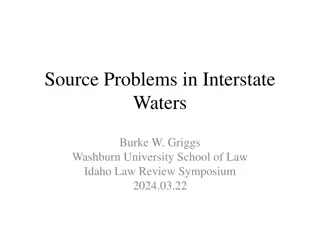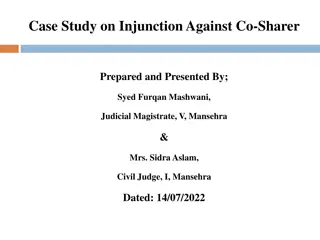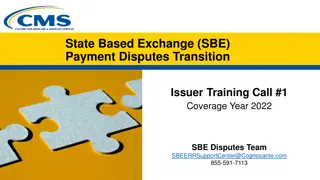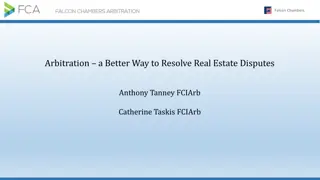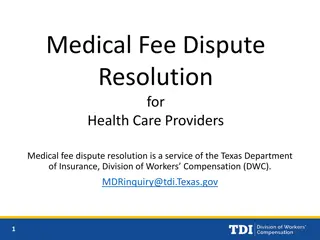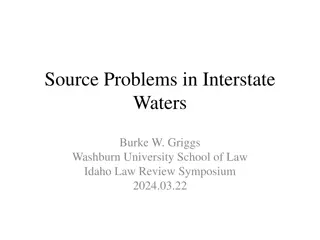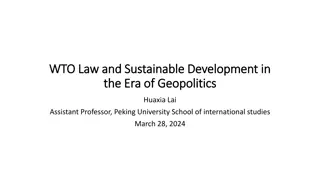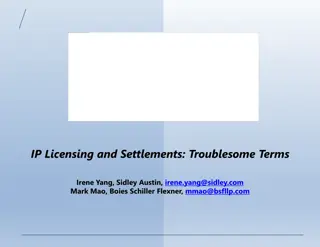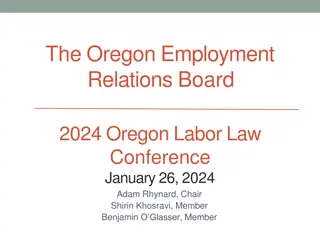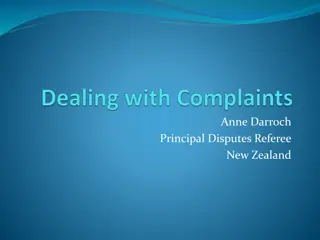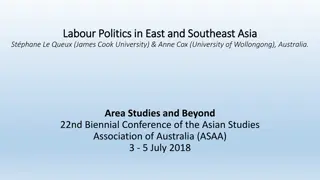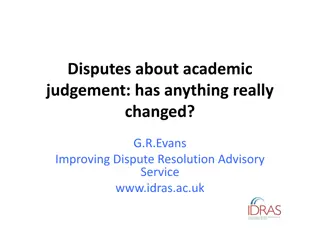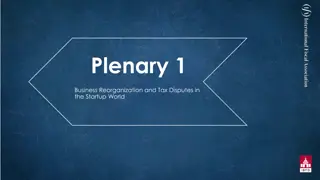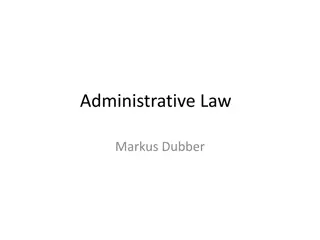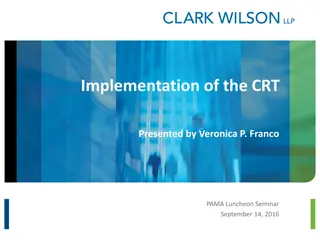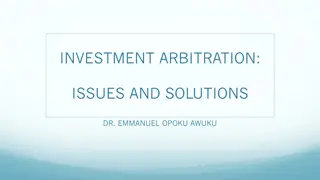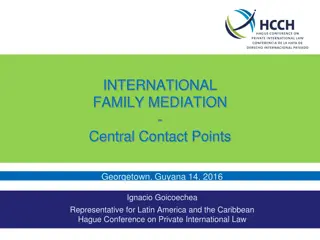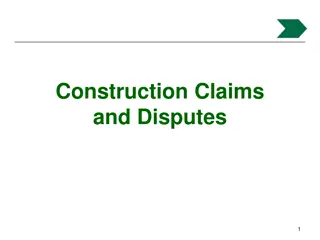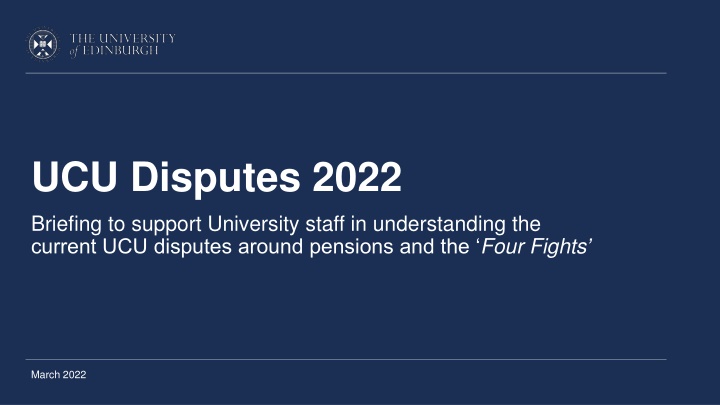
UCU Disputes and Changes to USS Pension Scheme 2022
Stay informed about the ongoing UCU disputes related to pensions and the Four Fights, including changes to the USS pension scheme. Get insights on the current situation, proposed changes, and the University's approach to ensure a sustainable pension scheme.
Download Presentation

Please find below an Image/Link to download the presentation.
The content on the website is provided AS IS for your information and personal use only. It may not be sold, licensed, or shared on other websites without obtaining consent from the author. If you encounter any issues during the download, it is possible that the publisher has removed the file from their server.
You are allowed to download the files provided on this website for personal or commercial use, subject to the condition that they are used lawfully. All files are the property of their respective owners.
The content on the website is provided AS IS for your information and personal use only. It may not be sold, licensed, or shared on other websites without obtaining consent from the author.
E N D
Presentation Transcript
UCU Disputes 2022 Briefing to support University staff in understanding the current UCU disputes around pensions and the Four Fights March 2022
Summary of the current situation In response to the proposed changes to the USS pension scheme, the UCU Higher Education Committee (HEC) declared disputes and subsequently held ballots for industrial action on USS, and the Four Fights (casualisation, inequality, workload and the 2021/21 pay offer). The ballots were for strike action and action short of a strike, and these closed on 4 November 2021. At Edinburgh, both ballots met the required turnout threshold and members voted in favour of both strike action and action short of a strike (ASOS) on both matters. On 12 November 2021, the UCU Higher Education Committee met to agree the union s next steps. Strike action took place from 1-3 December 2021 and from 14 February to 2 March 2022. Action short of a strike (ASOS) has been taking place from 1 December onwards. Further strike action will be taking place from Monday 21 to Friday 25 March 2022 inclusive. UUK continues to engage with UCU to understand why they believe there are grounds for a dispute on USS. Unless resolved beforehand, the right to strike and to take action short of a strike (ASOS) will end on 3 May 2022, i.e. six months from the date the ballot closed. UCU are re-balloting members between 16 March and 8 April 2022 for a continuing mandate. This document contains key information for staff on the proposed changes to the USS pension scheme, and the Four Fights dispute.
Changes to the USS pension scheme The USS pension scheme has recently undergone a valuation, an assessment of the pension scheme s financial health, which is carried out every three years. The valuation identified that the scheme is currently significantly in deficit, to keep pensions the same would require a material increase in contributions. To avoid damaging cost increases of up to 18.5% for scheme members and 37.7% for employers, USS employers, working with UUK (Universities UK), proposed changes which were then accepted by the Joint Negotiating Committee (JNC) to offer a way forward to conclude the 2020 valuation process. These changes were subject to consultation with USS members for the statutory 60 day period. The proposed changes are: From 1 April 2022, the contribution from members will remain at 9.8%, while employers will pay 21.6% (increasing from 21.4% currently). There will be a reduction in the accrual rate (the value at which new benefits build up) and the salary threshold has been reduced from around 60k to 40k. According to figures published by the USS Trustee these proposals would reduce the amount USS pension members receive in retirement by around 10-18% for most members (7-15% including state pension). All benefits earned from contributions to date are safe and will not be affected. A summary of all the changes to the USS pensions scheme can be found on the USS website: Statutory notice of changes to USS UCU tabled a late proposal (after the formal consultation had concluded) which was presented to Employers as part of a short consultation. This option was not supported and the JNC have now concluded the valuation.
USS pensions: the Universitys approach We are committed to helping our colleagues save and plan for retirement. We need to ensure that the current scheme is strong and sustainable, with a long-term future, which is affordable for individuals and employers. Employers and employees are currently contributing 21.4% and 9.8% of pay respectively to fund the scheme in its current form, and to meet the requirements of the USS Trustee and the expectations of the Pensions Regulator. The importance of longer-term financial sustainability cannot be overstated and is in everyone's interests as such it is important that scheme reforms are considered as part of a long-term solution. We continue discussions for long-term reform of USS and believe this will require changes to benefits offering better value for money, affordability and fairness across generations. The package of recommendations accepted by the USS Joint Negotiating Committee (JNC) offers a way forward to conclude the 2020 valuation process. We are aware that the University and College Union (UCU) did not formally table any alternative to those recommendations though there may still be opportunities via the member consultation. We support UUK efforts to set up joint working parties to find ways forward including reviewing funding approaches, such as Conditional Indexation. We believe this is important work but must be done in conjunction with a wider discussion on benefit reform and lower cost options. We will continue to work with all appropriate groups to find a long-term, responsible outcome to this ongoing challenge.
The Four Fights dispute As part of the Four Fights dispute, UCU are claiming: Pay: an increase to all spine points on the national pay scale of 2,500 Inequality (equity of pay by gender/ethnicity): nationally agreed action, using an intersectional approach, to close the gender, ethnic and disability pay gaps Casualisation: an agreed framework to eliminate precarious employment practices by universities Workload: nationally agreed action to address excessive workloads and unpaid work, to include workload models and Covid-related changes to working practices.
Four Fights: the Universitys approach Pay The University and its trade unions are committed to national pay bargaining and working with the New Joint Negotiating Committee for Higher Education Staff (New JNCHES) the central committee for multi-employer negotiations and dialogue on pay and pay-related issues. We applied the higher percentage increases to scale points 4 to 21 (which ranged from 3.2% to 1.54%) and the general 1.5% increase to the pay scales in August 2021. We have honoured incremental pay progression through the pay scales both this year and last and these increments are worth on average c3%. 60% of staff on grades 1-9 have received an increment this year. Depending on their actual grade and scale point, their total increase will have ranged from 4.5% to 4.9%. We have been a Voluntary Living Wage employer since 2012, and increased the relevant pay scales to align with the rate increase that was announced in November 2021. While we paused the contribution reward process in 2020/21, we will recognise exceptional performance again this year. University Executive has recently agreed to increase the 2021/22 budget for contribution lump-sum payments by 50% to recognise the contributions of more staff, as well as doubling the amount available for the reward of sustained excellence via salary contribution increments. University Executive has also recently agreed an increased budget for instant recognition via our voucher reward scheme and again be able to recognise the contribution of more staff.
Four Fights: the Universitys approach Inequality (equity of pay by gender/ethnicity) We have acknowledged in our biennial equal pay audit that more needs to be done to increase the diversity of our workforce and have institutional level action plans (gender and race) in place to do so We acknowledge that, while there have been small, incremental improvements over the last few years, our whole population average salary gender pay gap is high, and reflective of the gender bias in some of our grades and roles. It is particularly impacted by the inclusion of our grade 10 population. When this senior management group is excluded, the average salary gender pay gap for grades 1 to 9 almost halves to 8.8%. For staff in grades 6 to 9 it is 3.9% and, due to the female bias in grades 1 to 5 the pay gap is -1.1%, i.e. is in favour of female staff. Given the size and diversity of the University s activities, SLT members have committed to further analysis at College and Professional Service Group level - this work is currently underway. This work will inform what further action we can take locally and pan-University to address any of our pay gaps. As part of the increased budget for Contribution Rewards in 2021/22, the amount available for the reward of sustained excellence via salary contribution increments is being doubled and this will be used to recognise more staff and to address equality pay gaps. While we cannot address the value of the national pay points, or incremental pay progression based on service (inherent in our commitment to national pay negotiations), we will ensure that the decisions we do take as an institution, e.g. on contribution reward and academic promotions, are informed by our equal pay data. To ensure we understand if we do have ethnic and disability pay gaps, we will be encouraging all staff to update their data within People and Money. We re currently building the user guides to help staff do this across all protected characteristics.
Four Fights: the Universitys approach Casualisation We do not employ staff on zero hours contracts, and have not done so since late 2014 We do employ staff on guaranteed minimum hours (GH) contracts the vast majority of whom are our own students to whom we are committed to providing work experience. Our GH staff are employed on the same terms and conditions as our salaried staff and eligible for all of the same benefits. We have had an agreement in place with the University and College Union (UCU) since 2019 to ensure consistency of treatment for GH staff in teaching and research focussed roles and regularly review its implementation through the UCU Joint Consultative and Negotiation Committee (JCNC). Our GH student population aside, we do have a large, mainly research focussed, population employed on fixed-term contracts. While we cannot change the external funding landscape upon which much of our research relies, we are committed to reviewing how we manage fixed-term contracts and will shortly set up a joint union working group to do so. Our fixed-term contract staff are employed on the same terms and conditions as our open-ended staff and eligible for all of the same benefits.
Four Fights: the Universitys approach Workload We have in place collectively agreed principles for the development of work allocation models. We have a collective agreement in place with UCU and a clear policy for the support of our GH tutors and demonstrators to ensure they are paid for all of the work we require them to do. For the second year running, recognising the impact of the pandemic, we have revised our annual leave carry forward policy to enable staff to carry forward 10 rather than 5 days leave and to take this throughout the following year. We have generous family friendly leave policies in place, many according staff a day one right to leave (compared to legally set service criteria) and enhanced maternity and shared parental leave pay. We are investing in projects that will further support staff health and wellbeing at work, including a new Employee Assistance Programme (EAP) which was launched to all staff on 1st December 2021, and offers a significant increase in the amount of counselling sessions available to staff.
Next steps The University Contingency Group (UCG) is leading on planning and mitigation around industrial action, with the Academic Contingency Group (ACG) feeding into this process. The Academic Contingency Group is leading on mitigating significant disruptions to delivery of learning and teaching, and developing and issuing guidance to Schools in order to minimise the impact of any disruption on students whilst maintaining academic standards. A communications and engagement plan is being enacted, so that staff and students are informed and supported (with coordination with the Students Association). Impact of industrial action We are fully committed to minimising the disruption that this may have on the student experience, especially given the disruption that our students faced during the last academic year. The University has put in place significant mitigating steps to ensure that the impact of industrial action on students learning is minimised, while maintaining academic standards, and that students are not disadvantaged in exams or progressing to the next year.
Information and resources There is a range of information and resources available to support staff, students and employers in understanding the current disputes and what they mean. Universities Superannuation Scheme (USS) How will changes to USS benefits affect scheme members? (PDF) The 2020 USS Valuation summary for staff (PDF) USS pension scheme summary for students (PDF) Glossary of key terms Russell Group Why proposals to reform USS pensions are need to keep it affordable (video) Universities UK (UUK) Information for current staff eligible for the USS pension scheme (video)
Universities and Colleges Employers Association (UCEA) Current pay negotiations University of Edinburgh Updates and key information on the current disputes can be found on the website: Industrial Action 2022 webpage (staff) Industrial Action 2022 webpage (students) Latest communications on pension contributions and industrial action: Emails to all staff: 3 February 2022, 25 November 2021, 17 November 2021 Emails to all students: 3 February 2022, 17 November 2021 Universities Superannuation Scheme (USS): notice of statutory consultation (email to eligible staff 29th October 2021) Update on pension contributions from James Saville, Director of HR (email to all staff 7th September 2021)
If you have any questions or concerns around industrial action, please contact the Employee Relations team at industrial.action@ed.ac.uk

